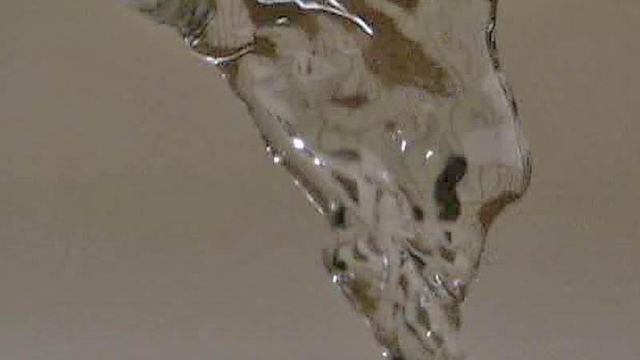Panel Calls for Tougher Water Rules Next Month
Raleigh should impose tougher water restrictions by Feb. 28 at the latest, and new water customers could be charged an extra fee to pay for conservation, a City Council committee decided Wednesday.
Posted — UpdatedThe moves were among a series of suggestions put forward by Councilman Thomas Crowder as the council's Public Works Committee discussed ways to use treated wastewater to conserve the dwindling supply of drinking water in Falls Lake, the city's primary reservoir. The lake had at least 109 days of available water as of Wednesday.
Crowder, who isn't on the committee and appeared to speak to its members, also called for mandating that municipal workers use treated wastewater for as many outdoor uses as possible, requiring developers to capture the water used to flush water lines at new homes and reviving the city's Water Conservation Task Force.
After Crowder urged setting a firm date for enacting Stage 2 water restrictions, the committee voted to set a Feb. 28 deadline. The tougher rules would ban all outdoor watering and pressure washing and require car washes to recycle their water.
The full council is expected to discuss the move next week.
Mayor Charles Meeker plans to meet Friday with officials from the six Wake County towns that purchase water from Raleigh, and officials have said the Stage 2 restrictions could be adopted as early as next week.
To help the city recoup money it loses as residents use less water, Crowder suggested increasing the connection fee for new water customers until drought conditions ease. He didn't specify what he thinks the fee should be, however.
The committee referred the idea to city staff members for more study.
Meeker recently backed off a call for a 50 percent surcharge on water rates for all users to help encourage conservation. The idea met with stiff public opposition.
The Stage 2 rules also would prevent developers from flushing new water lines to test for bacteria, a required step before a new home is granted a Certificate of Occupancy.
The Home Builders Association of Raleigh-Wake County on Monday suggested that developers would be willing to pick up the cost of capturing the drinking water used to flush lines and hauling it back to Falls Lake or the city's water treatment plant.
Raleigh should require developers to do that, Crowder said, although he didn't suggest any penalty for builders who fail to capture the water.
City staff members will look into a possible exemption from the Stage 2 rules for developers who capture used water. They also will report on Crowder's plan for city workers to use treated wastewater for irrigation, street sweeping, de-icing roads and other outdoor functions.
"We're still using city drinking water to fill up de-icing trucks, and it doesn't make any sense in the time of an extreme drought," said Councilman Russ Stephenson, a committee member. "The idea is to create a market for this alternative water source."
If approved, the new pumping system could open in December 2009, and some residents could hook up to the system.
The committee also approved Crowder's call for the city's Water Conservation Task Force to begin meeting again to devise long-term strategies for dealing with Raleigh's water needs. Some issues to be addressed are developing Stage 3 restrictions and creating a system of conservation credits.
• Credits
Copyright 2024 by Capitol Broadcasting Company. All rights reserved. This material may not be published, broadcast, rewritten or redistributed.






